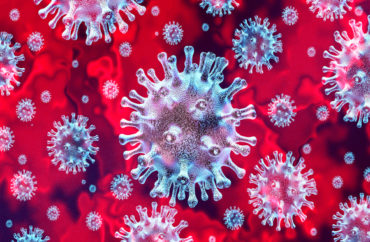
Government promises to update law to protect academic freedom
Jonas Ludvigsson undermined the political argument that schools couldn’t reopen in person with his research findings about COVID-19’s negligible threat to children and minor threat to teachers.
The professor of clinical epidemiology at Sweden’s Karolinska Institute faced such hostility for his findings, published in the New England Journal of Medicine, that he’s now given up on researching COVID-19, much less debating it.
Ludvigsson’s comments to the Swedish Medical Association were translated from Swedish by The British Medical Journal. He said that he hasn’t been able to sleep more than a few hours for a week as a result of the “angry messages through social media and email” criticizing his study and partly blaming him for Sweden’s contrarian COVID-19 strategy.
His letter to the editor, first published Jan. 6 and listed in the Feb. 18 issue of NEJM, went through several revisions and “formal external peer review,” including statistically, before it was published, Ludvigsson told the association.
The pediatrician’s research focused on children from age 1 to 16 during the first wave of COVID-19 last spring, tracking admissions to intensive care units March 1-June 30. It included those with “laboratory-verified or clinically verified Covid-19, including patients who were admitted for multisystem inflammatory syndrome in children” because it’s “likely” related to COVID-19.
Just 15 children went to the ICU, for a rate of 0.77 per 100,000. Four had “an underlying chronic coexisting condition (cancer in 2, chronic kidney disease in 1, and hematologic disease in 1),” and none died. As for teachers, “fewer than” 10 in preschool and 20 in school went to the ICU during the same period. The schoolteacher ICU rate was about 19 in 100,000.
Relevant to school reopening debates across the globe, Ludvigsson notes that children weren’t wearing face masks. As with the rest of Swedish society, they were simply “encouraged” to practice social distancing.
Deaths from any cause in the 1-16 age group only slightly budged from the four-month period before the pandemic to the four-month period after – from 65 to 69.
Sweden is planning to boost academic freedom protections in law in part as a result of Ludvigsson’s experience, though it’s unclear what will change.
Higher education minister Matilda Ernkrans told The BMJ the government is planning to amend the Higher Education Act to ensure “that education and research must be protected to enable people to freely discover, research, and share knowledge.”
Academics have faced “an increase of threats” related to research on the novel coronavirus: “When people are silenced, it’s a threat against the freedom of speech and our democracy.”
The president of Ludvigsson’s institute, Ole Petter Ottersen, told the journal that “hateful and scornful accusations and personal attacks cannot be tolerated,” whether against the pediatrician or other researchers who have “retreat[ed] from the public debate after being threatened or harassed.”
He called on university leaders to urge their researchers to “keep a decent tone in debates and discussions” so that their peers aren’t bullied into silence and away from controversial research.
University World News reported in November that university leaders and academic organizations across Scandinavia were pushing academic freedom legislation “amid rising concern that academic freedom is being eroded around the world.”
Sweden was reviewing responses to a May “consultation” on its proposal to “re-introduce academic freedom in university law as of 1 July 2021 if endorsed by parliament.”
The government warned that the “independent and critical” role of universities in society was under threat, “because they are regarded as contradicting the values of those in power.” A Swedish government study in 2018 found “21 out of 26 universities said that there is a risk that researchers will be exposed to harassment, threats and violence.”
Read the NEJM letter, BMJ report and University World News report.
MORE: Hard data don’t convey COVID crisis on campus
IMAGE: Lightspring / Shutterstock.com





Please join the conversation about our stories on Facebook, Twitter, Instagram, Reddit, MeWe, Rumble, Gab, Minds and Gettr.